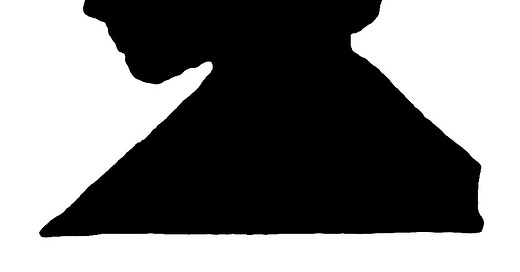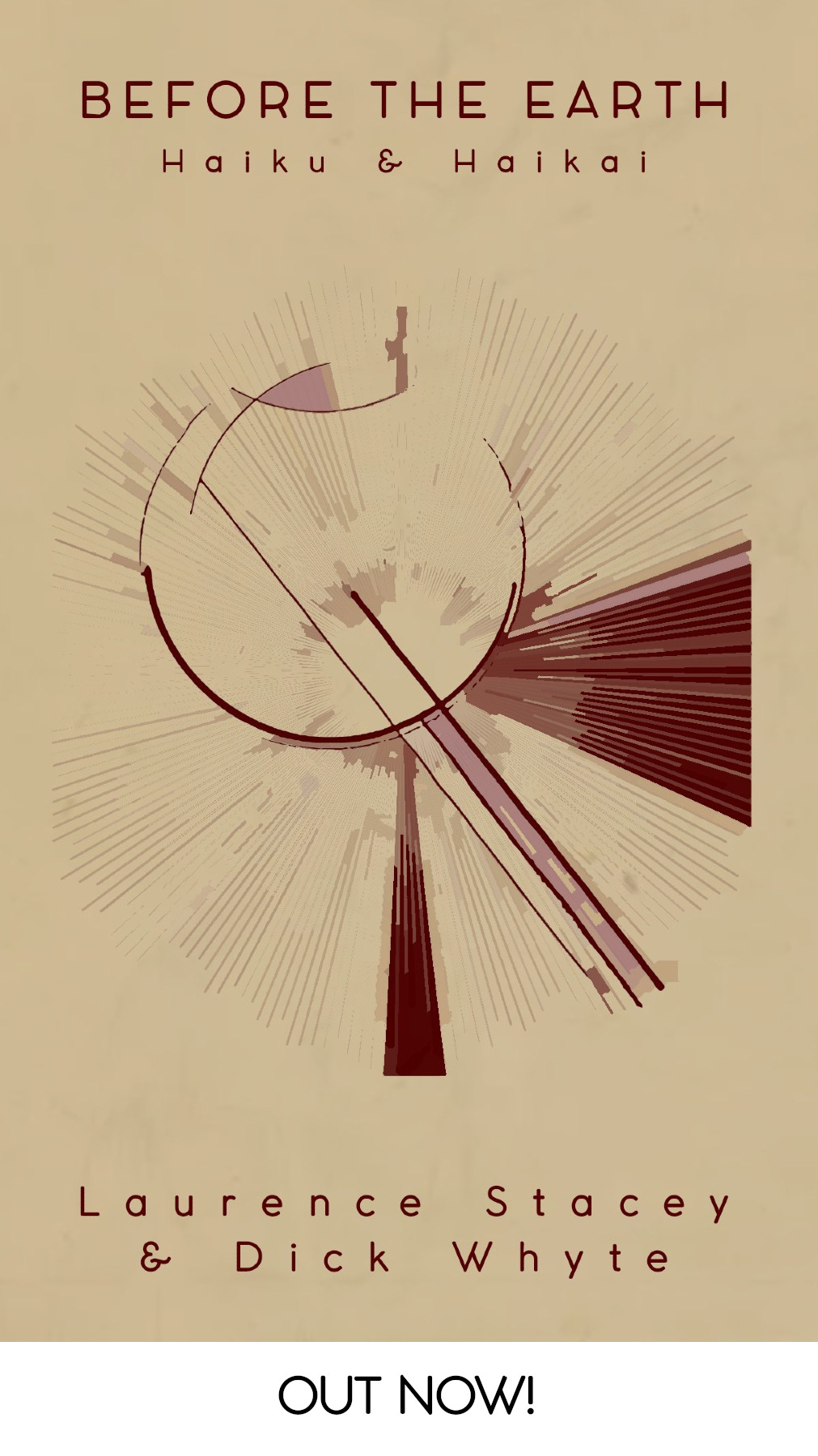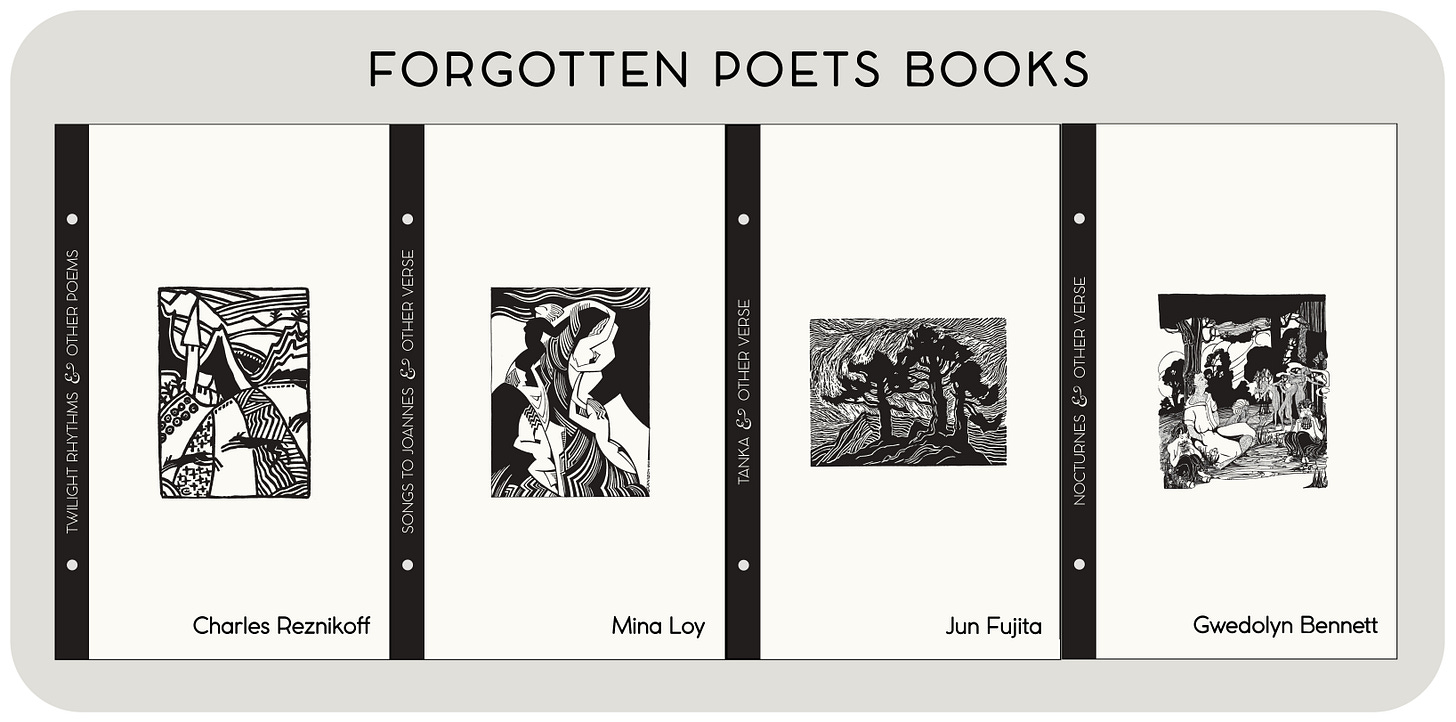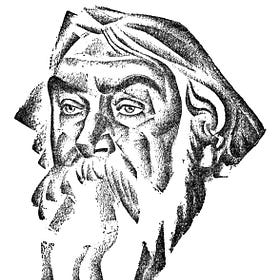—: Puppets :— We knelt reverently like the rest. The organ sang with deep-throated poignancy. Your fingers in mine quivered at the sound. And I turned and saw your eyes, bright as the candle light, dark as the altar cloth; your lips parted in a long imagined kiss. And I wondered, Why are we looking for God?
—: Privilege :— If I stand on a hill, close to the sky . . . blind to all that passes by, save, perhaps, the wind whose fleet hurrying feet hold my attention . . . save, perhaps, the stars who sing, quite inconsistently, Serenades one moment and Ave Marias the next . . . If I stand on a hill, close to the sky . . . Who is to know? Who is to care?
—: One To Another :— If you must go, then leave me while I sleep— that I may never know when freedom kindles a myriad fires in your glance to melt the wax of your patience. I am old: Tie the faded ribbons of my hands into a fragile knot and ignore the dumb supplication of my silence . . . But leave me while I sleep, if you must go.
—: Rendezvous :— Soon I shall know an exquisite fatigue: tomorrow I shall have ended a long journey. Soon a million days of rest and, perhaps, an old friend or two Perhaps, Annette, I shall find you waiting, your tiny heels making impatient patterns of sound on the steps . . . 1917 is an unhappy recollection: Paris wearing her tattered mask. My little Annette, who spoke but one word of English, and her shattered breasts that I had kissed. A hoofmark, like the print of a general's boot heel, on my mind. And an intangible fingerprint on my lungs Today fools still sing of such horrors and degradations. But I am only a radical, a fanatic. I, who prefer the simple buffoonery of a clown to a brilliant symphony of war cries The ecclesiastics may breathe again. And the sodality of capitalists may clap their fat, covetous hands. They may even write my epitaph I have a rendezvous—
Gale Wilhelm (1908-1991) was born in Eugene, Oregon, and in her early 20s moved to “Berkley, California” with her family. (Kaleidoscope, 1930) Her poetry appeared in Unrest: The Rebel Poets’ Anthology, and the magazines Contemporary Verse (1929) and Kaleidoscope (1930). Friends with the well-known poet Carl Sandburg, whom she met through her partner Helen Hope Rudolph Page (editor of The Stockton Herald, in Oakdale).
In the 1930s and 1940s Wilhelm wrote numerous novels, many of which had queer protagonists and themes, including We Too Are Drifting (1935), Torchlight To Valhalla (1938), Bring Home The Bride (1940), The Time Between (1942), and Never Let me Go (1945), as well as the introduction to Benjamin Appel’s Writing For The Experimental Market (1936). Her early novels were praised, with the sparse and direct prose style being compared to Ernest Hemingway. In the mid-1940s she stopped publishing and vanished from public life, “perhaps because reviews of her work had become increasingly unappreciative.” (Claude J. Summers, The Gay & Lesbian Literary Heritage, 2002)
Her novels were rediscovered in the 1980s and praised for their “unapologetic” presentation of lesbian love. (Summers, 2002) “In 1984, Naiad Press reprinted We Too Are Drifting. Barbara Grier, the publisher, included a biographical essay that ended in a plea for help locating Wilhelm.” The following year, “Grier received an anonymous note that eventually led to Wilhelm's ‘discovery’ in Berkeley, California. (Wilhelm commented: “I always knew where I was.”) Aged and ill, Wilhelm was, nonetheless, delighted that her books had been reissued and provided a brief autobiographical sketch for the 1985 Naiad reissue of Torchlight to Valhalla.” (Bonnie Zimmerman & George Haggerty, Encyclopedia of Lesbian and Gay Histories and Cultures, 2021)
“Now suppose you are a young writer. You have something to say and you believe the manner of telling is important. You know that in the experimental magazine you are not obliged to pour your thoughts into definite molds, you know it has sponsored most of the now significant names. You turn to it quite naturally.
“Today we are still writing of birth and death, love and hate, peace and war. We shall still be writing of these things tomorrow. It is therefore your own manner of perception that shapes your work and distinguishes it from that of any-one else. The experimental magazine recognizes this fact and fosters it. Perhaps that is the secret of its importance.
“It is necessary in the beginning to cut away all the surplus flesh and write close along the bone. There is meaning behind simplicity. There is meaning behind the ego of I, the oneness of Self. There is a tightness, a swiftness in living. There is no time for cudding an enormous Why? This is important to me, you say, listen I will tell you. A pair of elevator doors opening under a red light have an amazing importance at five o'clock in the afternoon. You see? You write telling of the importance of these things that have no apparent life. And that is a good thing . . .
“The experimental magazine is in one sense a training school. Sometimes unfortunately it is also a back-fence for little boys who have time to waste. But more than anything else, and this is the really fortunate thing, for you who have something to say, some definite place to go it is the unlocked door to the room beyond.” (Writing For The Experimental Market, 1936)
—: After Gale Wilhelm :— by Dick Whyte knowing you weep i cannot sleep
And here’s a bonus poem, not really written “after” Wilhelm, but still somewhat inspired by her work;
—: For B :— by Dick Whyte spit on the spirit till it's holy & filled with holes like rain articulating the surface of a lake we kiss
Forgotten Poets Presents:
Forgotten Poems, a living anthology of obscure and out-of-print poetry from the late-1800s and early-1900s. Explore the archives:
Angelina Weld Grimke - 5 Short Poems (1923-1927)
—: I Weep :— Not as the young, pleasurably, Not as the aged, mistily, But quietly,— Drop by drop The great tears splash upon my hands, And save you saw their shrine, You would not know I wept. . .
More poems about kissing . . .
Pauline Cahn - 2 Short Poems (1918-22)
—: Rest :— I am so tired—so tired. I see too many people, Read too many books. Do too many things. I hate the theaters, I hate my work, I want you,—only you . . . . Come to me between the cool sheets . . .
More poems about the gods . . .
Alfred Kreymborg - 6 Short Poems (1915-1917)
—: Clay :— I wish there were thirteen gods in the sky. One blessing won't do. Or even one god in me. I can't shape this thing alone. . .
More poems about the sky . . .
Robert Alden Sanborn - 5 Short Poems (1915-1917)
—: Soul of the Lotus I :— (To Hasegawa) A white lamp, hanging— In its mouth a pink pearl of flame— Swinging by three strands of light . . . A pool beneath, Quaint and secret as mud . . .
Charles Erskine Scott Wood - 5 Very Short Poems (1877-1925)
—: Untitled (1877) :— I have seen war. I have heard it. I have smelled it. Even now I am waked from dreams By the stink of bodies Three days dead under the sun. Maggots filled their mouths . . .
















Love this Gale Wilhelm wisdom:
“Today we are still writing of birth and death, love and hate, peace and war. We shall still be writing of these things tomorrow. It is therefore your own manner of perception that shapes your work and distinguishes it from that of any-one else."
So dreamy! Your final poem! Real rain and cinematic.